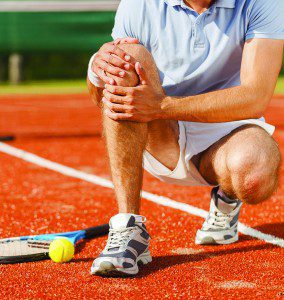By Dr. John C. Kagan, M.D.
 Spring is here, and with this time of year come many of the popular sports activities that we know and love. The great advantage of living in Florida is the endless opportunities to get outside and remain active, but with this opportunity comes the responsibility to ensure that we are taking care of our bodies and taking necessary precautions to avoid injuries.
Spring is here, and with this time of year come many of the popular sports activities that we know and love. The great advantage of living in Florida is the endless opportunities to get outside and remain active, but with this opportunity comes the responsibility to ensure that we are taking care of our bodies and taking necessary precautions to avoid injuries.
Unfortunately, even if you are regularly active, you are not completely immune to injuries caused by athletic activity. Seemingly minor injuries, such as a small twist of your ankle while taking a stroll or a pulled muscle at the gym, have the potential to put you out of commission for days or weeks.
Tips for injury prevention
Fortunately, many sports injuries can be prevented. The key to reducing the risk of injury or re-injury is to listen to your body and know your limits. Exercise these 10 tips to help you stay in the game:
1. Stretch daily to maintain flexibility
2. Choose the right equipment and protective gear when appropriate
3. Gently warm up your muscles and then cool down after activity
4. Drink plenty of water before and through-out any physical activity
5. Take time to rest and recover after strenuous activity
6. Learn proper techniques for the sport
7. Maintain a regular fitness regimen to avoid straining sedentary muscles
8. Do not play when injured to avoid further damage
9. Let your body heal; do not overexert yourself when recovering from an injury
10. Maintain a proper diet so that your body is receiving the nutrients it needs
Treating common sports injuries
Many sports injuries, while painful, can be treated with what is referred to as RICE, which stands for rest, ice, compression and elevation. To avoid further damage to an injured muscle, tendon or ligament, stop participating in the activity to and rest the affected area. At home, apply an ice pack, or wrap crushed ice in a towel, and place on the injured area several times a day for 20-minute increments. Compression means wrapping a sore elbow, ankle, knee or wrist with an ACE bandage. Finally, it is important to elevate the injured area to diminish swelling. Following these steps can reduce inflammation and limit blood flow to the area, which can provide short-term relief from pain.
Should you call the doctor?
The American Academy of Orthopedic Surgeons recommends consulting a physician for all but very mild injuries. The American Orthopaedic Society for Sports Medicine suggests that letting an injury go untreated can worsen the injury or lead to more serious complications, so if symptoms persist after a sports-related injury, it is important to contact your doctor to assess the extent of damage.
Early diagnosis, treatment and rehabilitation can allow you to regain full motion and strength. Severe sprains or strains may require a brace, casting or even surgery. Even mild injuries may benefit from modified activity, immobilization and physical therapy.
If you are experiencing pain caused by a sportsrelated injury, make an appointment to speak with an orthopedic specialist. Dr. John C. Kagan and his staff are ready to answer all of your questions. Dr. Kagan has more than 30 years of experience as an orthopedic surgeon and sports medicine specialist treating patients in Southwest Florida. He specializes in treating patients with knee, shoulder and hip pain, as well as general orthopedics and hand surgery. For more information, visit www.kaganortho.com or call 239-936-6778.










